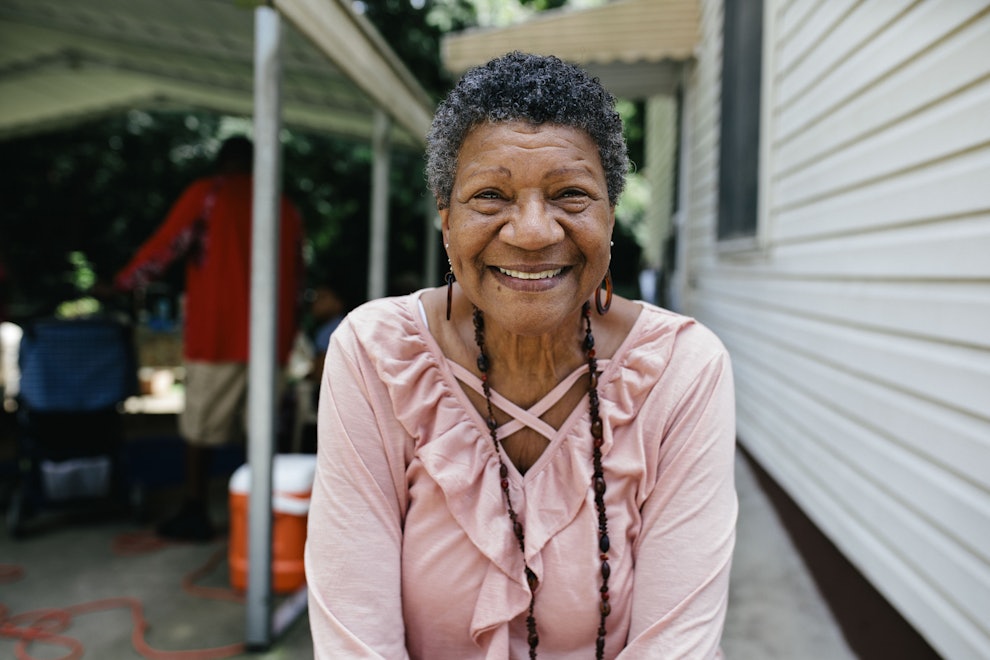What Is Geriatric Care: Everything You Need To Know
Article at a glance
Geriatric doctors focus on conditions and issues that affect older adults.
Geriatric Medicine is in greater demand as the age of the population continues to increase rapidly.
There are multiple ways to determine whether a Geriatric provider is needed and right for a patient’s particular set of circumstances.

It doesn’t come as a surprise that older patients may require more specialized care as they age. The aging process can lead to older adults requiring specific care management—which is where geriatric medicine and healthcare professionals are essential.

What is Geriatric Medicine?
Geriatric medicine is a subspecialty that deals with conditions that affect older adults. This includes a primary care physician, known as a geriatrician or a gerontologist, that has distinct knowledge and skills related to the care of older adults.
Needed skills include:
Diagnostic Care: treating or diagnosing existing issues by monitoring current problems and examining new symptoms.
Therapeutic Care: focusing specifically on treatments to cure diseases.
Preventive Care: services that help prevent potential illness and detect problems before they arise.
Rehabilitative Care: administering treatment to patients with the intent of curing, improving, or preventing a worsening of a condition. For example, cardiac rehabilitation after a heart attack or rehabilitation after a stroke.
Why is Geriatric Medicine Important?
Geriatric care accounts for a very small portion of medical services, despite the fact that its services are essential for older adults. As there continues to be an increase in the rapidly aging population, distinct services and care are vital for patients—services that primary care providers or internal specialists may not cover as in-depth.
While some older adults may have family members who serve as caregivers, the role can cause considerable stress. Geriatric care is extremely important to help caregivers support and maintain health of loved ones.
However, geriatric care is often overlooked, despite the growing need for its services. The U.S. Bureau predicted that by 2030, 20% of the population will be over the age of 65. As people continue to rapidly age, geriatric care will become an even more necessary subsect of family medicine.

At What Age Should You Consider Geriatric Care?
While geriatricians specialize in care for older adults, there isn’t a set age that a person should automatically switch to a geriatric doctor. In fact, some people never choose to switch to a gerontologist. It is possible for a 65-year-old person to require geriatric care if they have multiple medical issues brought on by age, and also possible for an 80-year-old in great health to not require geriatric care.
What Types of Issues Do Older Adults Face?
There are plenty of diseases and health conditions that target the older population and geriatonlogists assist with, such as:
Diabetes
Heart disease
High blood pressure
Dementia and cognitive decline
Cancer
Osteoporosis
Alzheimer’s disease
Hearing and vision loss
Falls and balance issues
Aside from physical medical conditions, many older patients struggle with coordinating their medical care or strategizing how to cover their medical costs. Many patients feel confused about how their health insurance functions altogether or what kind of benefits they have, which can be stressful and affect their quality of life. Providers at Oak Street Health are trained and ready to assist patients with their care coordination or talk through any questions patients may have about their Medicare plan.

Signs you Might Need Geriatric Care
Making the decision to seek out geriatric care can be influenced by a few different factors:
Having multiple medical conditions
Having diseases associated with aging (such as dementia or osteoporosis)
If treatment for one medical condition adversely affects another condition
Experiencing physical frailty or trouble functioning in day-to-day life
This can also be beneficial for those who prefer specialized care surrounding age-related issues—though a person can discuss if this type of care can be provided by a PCP.

What is Included in a Geriatric Assessment
A geriatric assessment is a series of evaluations used to determine an older adult’s physical health, mental health, cognitive function, and ability to function, among other factors. A geriatric assessment often includes questionnaires and evaluations regarding:
Daily living activities
Medical conditions
Mental factors such as anxiety, depression, and mood
Social support/involvement
Risks for falls or injuries
Nutrition
Geriatric assessments are beneficial for older adults, as certain factors may be discovered that normally wouldn’t in a traditional physical exam—which can help influence treatment plans and better lifestyle choices.

Types of Geriatric Care Providers
While it may seem common to focus on the idea of one type of medical health provider in connection with health care, there are actually different types of geriatric care providers that can work with patients. A few examples of these are:
- Geriatricians or gerontologists: medical professionals who specialize in geriatric medicine.
- Adult Nurse Practitioner (ANP): an advanced practice nurse who specializes in primary care geared towards adults. Nurse practitioners work in multiple settings, such as hospitals, community-based clinics, physician’s offices, and others.
- Geriatrics Nurse Practitioner (GNP): an advanced nurse practitioner who specializes in primary and/or acute medical care geared towards older adults in settings such as hospitals, long-term care facilities, nursing homes, and assisted living facilities.
- Geriatric Care Manager: geriatric care managers are professionals, usually nurses or social workers, who specialize in geriatric care management—helping to coordinate medical services, providing emotional support, planning and evaluating in-home care needs, and addressing difficult topics.
Geriatonlogists vs Gerontologist
A geriatonlogist is a medical physician who specializes in geriatric medicine. These specialists receive formal training on how to handle these issues and can diagnose and treat a wide range of conditions that affect elderly patients. Their medical specialties are focused distinctly on older patients.
A gerontologist isn’t a medical doctor, but a trained professional who specializes in the study of aging issues and can provide supportive care and services to older adults—though not to the same medical degree as a geriatonlogist. They can also be professionals who study in fields ranging from dentistry to social work that may receive certification in gerontology.
Training To Become A Geriatrician
In order to become a geriatric specialist, a person must complete education requirements and become licensed/certified.
Education Requirements
To become a Doctor of Medicine (MD) or a Doctor of Osteopathic Medicine (DO), one must:
Complete four years of undergraduate study for MDs.
Apply to medical schools offering allopathic programs that lead to an MD or DO degree.
Complete a residency after medical school and then enroll in a geriatric fellowships program for fellowship training. For geriatric care, a person usually applies for a primary care residency in either internal or family medicine.
To become an ANP or GNP, one must:
Receive their Bachelor of Science in Nursing Degree.
Complete a Master’s or Doctorate of Science in Nursing Degree.
Complete 500‑2000 clinical hours in various specialties with usually the last year focusing on their specialty area, be it family, internal or geriatric health.
Examinations and Licensing
Geriatricians will complete either the USMLE or COMPLEX-USA exam:
Complete either the U.S. Medical Licensing Examination (USMLE)— a three-step examination for MDs.
The Comprehensive Osteopathic Medical Licensing Examination (COMLEX-USA)— the test taken by DOs.
Meanwhile, ANPs and GNPs must take the following steps to become certified:
NCLEX-RN Certification Exam to become an RN followed by a Master’s or Doctoral program.
After graduation from the program, they can then take the Gerontological Nurse Practitioner Certification Exam for their certification.
Board Certification
While this is not necessarily a requirement, receiving board certification proves a strong commitment to the field of study and medical care they’ve chosen. Those seeking board certification in geriatrics must meet the requirements for accreditation by the American Board of Medical Specialties (or ABMS). These include:
Finishing four years of premedical education in a college or university
Earning a medical degree from a qualified medical school
Completing three to five years of full-time experience in a residency training program accredited by the Accreditation Council for Graduate Medical Education (ACGME)
Providing letters of attestation from a program director and/or faculty
Obtaining an unrestricted medical license to practice medicine in the United States or Canada
Passing an examination created and administered by an ABMS Member Board like the American Board of Internal Medicine (ABIM) or the American Board of Family Medicine (ABFM)
Insurance and Geriatric Care
While some insurance plans may cover costs related to geriatric care, many have very limited coverage or coverage with strict provisions. A person should check with their insurance provider about what is covered for geriatric care.
There are government-sponsored programs that can help cover some aspects of geriatric care, including:
Medicare: hospital stays, doctor appointments, some home health care, hospice care, and preventative services.
Medicaid: covers certain types of medical care and long-term care, but provisions differ in each state. Check your local Medicaid provisions to know what kind of geriatric care coverage is possible.
Program of All-Inclusive Care for the Elderly (PACE): a combination of Medicare and Medicaid programs, PACE provides services and care to patients in their homes who would have no other option but be placed in a nursing home/assisted living facility if they meet eligibility requirements. You can see if there is a PACE plan available near you at this source.
Social Security Administration Programs: provides some financial assistance to those with certain disabilities.
FAQ: How to Find a Great Specialist
When searching for a geriantonlogist, there are a few important considerations to keep in mind such as proper training, communication, and more.
Does the provider have proper training?
Gerontologists must undergo rigorous training to receive their licenses, so determining if the provider has gone through the proper protocols is worth noting. When it comes to other types of health professionals, such as physical and occupational therapists, do they have proper training in geriatric care? Are they able to help an older patient navigate taking multiple medications or who is struggling with mental health? Not to mention, are they associated with an academic medical center that helps them incorporate the latest medical advances into their patient’s care regimen?
Do they communicate well?
One of the main benefits of seeing a geriatric doctor or nurse practitioner is knowing they should understand specific struggles elderly patients face—such as hearing and vision loss or difficulty understanding immense medical jargon. It’s worth keeping in mind whether your specialist takes the time to communicate with you fully. Additionally, seeing how well they communicate with other healthcare providers and how they choose to remind patients of future appointments or even medicine refills.
Will adequate care be available?
The location of the geriatric provider, how difficult it is to reach them, and whether or not the person’s current insurance policy will cover the particular provider are all appropriate factors to consider. Additionally, whether or not they provide services that can be easily accessible—such as online patient portals that allow a person to view medical records, lab results, or contact their provider, among other resources—can be vitally important for those who live in underserved communities.
Sources
- https://online.maryville.edu/blog/gerontology-vs-geriatrics/
- https://www.americangeriatrics.org/geriatrics-profession/about-geriatrics/geriatrics-workforce-numbers
- https://www.aamc.org/cim/explore-options/specialty-profiles/geriatric-medicine‑0
- https://www.americangeriatrics.org/geriatrics-profession/training-requirements/training-geriatricians
- https://online.regiscollege.edu/blog/what-does-an-adult-geriatric-nurse-practitioner-do/
- https://www.provocollege.edu/blog/how-to-become-a-gerontological-nurse-practitioner/
- https://www.aanp.org/about/all-about-nps/whats-a-nurse-practitioner
- https://www.physicianassistantedu.org/
- https://www.aanp.org/about/all-about-nps
- https://www.nia.nih.gov/health/what-geriatric-care-manager
- https://www.aafp.org/pubs/afp/issues/2011/0101/p48.html
- https://www.medicare.gov/plan-compare/#/pace?year=2023&lang=en
- https://www.nia.nih.gov/health/paying-long-term-care
- https://www.census.gov/content/dam/Census/library/publications/2020/demo/p25-1144.pdf
Become a patient
Experience the Oak Street Health difference, and see what it’s like to be treated by a care team who are experts at caring for older adults.




